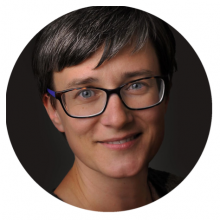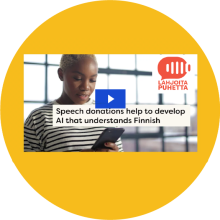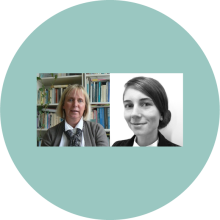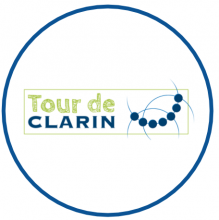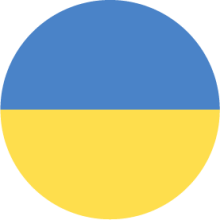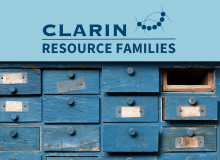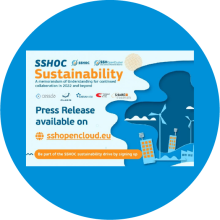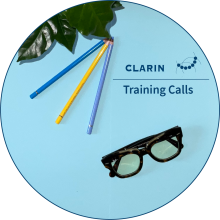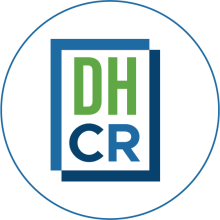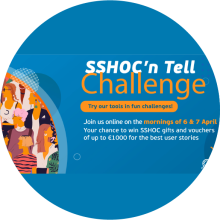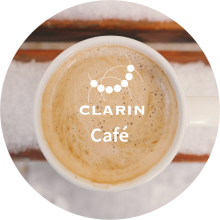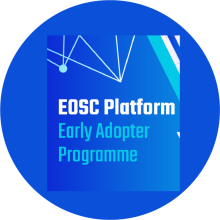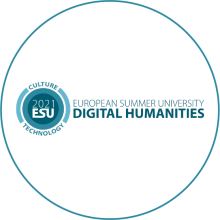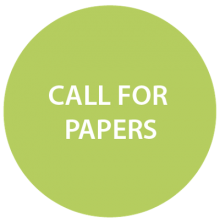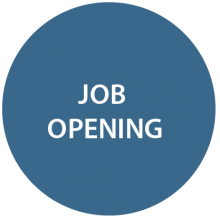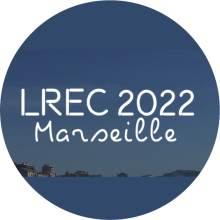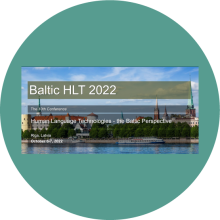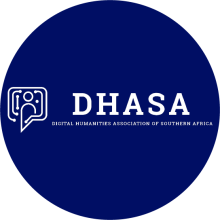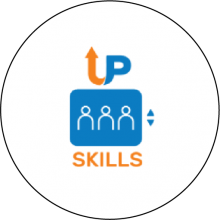Darja Fišer Appointed Executive Director of CLARIN ERIC from 2023
Darja Fišer has been appointed Executive Director of CLARIN . She will start the new position in January 2023. She will take over from Franciska de Jong, who has held the position since 2015.
Darja Fišer has been Vice Executive Director of CLARIN ERIC (2019-2020) and Director of User Involvement for CLARIN ERIC (2016-2019). With a background in corpus linguistics and language resource creation, she has brought the activities to stimulate the use of the CLARIN infrastructure to the next level.
As Executive Director, Darja Fišer’s main goal will be to ensure CLARIN’s leading role in the social sciences and humanities, as well as organisational and financial sustainability within and beyond Europe both in academia and outside it.
Read more
New CLARIN Impact Story: Donate Speech Database to Boost Research and Innovation
Read the new impact story about Donate Speech, a project that has collected around 4000 hours of colloquial Finnish speech to accelerate the development of language-based artificial intelligence applications for Finnish. This large resource of everyday, spontaneous speech was designed with commercial use in mind and could be used to develop a range of IT and speech processing applications, such as subtitling, translation, and voice-enabled interfaces.
CLARIN General Assembly Elects New President and Vice-President
We are pleased to announce that
Alice Dijkstra and
Naďa Vaverová have been appointed as president and vice-president respectively of CLARIN’s General Assembly () for a term of two years from 1 May 2022.
The GA represents the members of CLARIN ERIC and, among other duties, appoints the Executive Director and the Scientific Advisory Board, decides on strategies for CLARIN, and approves the work programme and annual budget of CLARIN ERIC.
Tour de CLARIN: DANSK
Take a tour around the Danish CLARIN Knowledge Centre
DANSK. The centre offers advice regarding language technology resources and applications especially for Danish, and guides users in using the resources provided by
CLARIN-DK.
The interview features Sidsel Boldsen, a PhD student in natural language processing and digital humanities, who is also part of the interdisciplinary research project ‘
Script and Text in Time and Place’ at the University of Copenhagen. She has successfully collaborated with the DANSK K-centre.
CLARIN ERIC Highlights Initiatives in Support of Ukraine and its Research Community
In early March, CLARIN issued a
statement in solidarity with Ukraine and its people. In line with this, a web page has been set up, providing information on current initiatives supporting the Ukrainian research community from the CLARIN network and beyond. The page is continuously being updated and has information regarding Ukrainian language resources, translation initiatives, research projects, as well as job and scholarship opportunities.
CLARIN Resource Families: Tools for Sentiment Analysis and Opinion Mining
The
CLARIN Resource Families provide a user-friendly overview of the available language resources in the CLARIN infrastructure for researchers from the digital humanities, social sciences and human language technologies.
This month, CLARIN highlights: Tools for sentiment analysis and opinion mining.
Sentiment analysis and opinion mining are text analysis methods that identify and extract people’s opinions, attitudes and sentiments within a text. Opinion mining is a text extraction method targeting those parts of a text in which a person's attitude, opinion, or sentiment is expressed.
The CLARIN infrastructure provides access to five tools dedicated to sentiment analysis or opinion mining, available for download or online access. Four of the tools can be used for sentiment analysis/opinion mining within a single language, while one tool has a broad multilingual scope and can be used for opinion mining in 10 languages.
BLOGS & REPORTS
SSHOC Memorandum of Understanding to Bolster Cloud Services for SSH
The Social Sciences & Humanities Open Cloud (SSHOC) has signed a Memorandum of Understanding aimed at improving access to digital data, tools and training for the SSH community. The result of this is a new entity, the SSH Open Cluster, comprised of, among others, the European research infrastructures
CESSDA,
DARIAH, and CLARIN. The SSH Open Cluster will intensify collaboration between SSH stakeholders, bringing long-term visibility, impact, and sustainability of their thematic service offer by providing high-quality ‘cloud ready’ SSH tools and data throughout Europe and beyond. It will coordinate activities with key stakeholders, including EU institutions,
EOSC Association,
ESFRI, national ministries, funding bodies, user communities, and industry.
TRAINING AND EDUCATION
Teaching with CLARIN Call
Teachers and trainers who have used the CLARIN core services (such as the Virtual Language Observatory, the Virtual Collection Registry, Content Search, the Language Resource Switchboard) to teach language research, methods, or different aspects related to linguistic data management, FAIR and open science, are encouraged to share their stories and teaching materials via the Teaching with CLARIN Call. All eligible materials will be showcased in the Teaching with CLARIN session at the CLARIN Annual Conference in Prague, 10-12 October.
Deadline for submissions: 30 June 2022
Read more
Digital Humanities Course Registry: Call for User Stories
The DH Course Registry is a curated platform created by CLARIN and DARIAH that provides an overview of the teaching activities in the field of digital humanities worldwide. Students can use the registry to find courses and upgrade their skills in the digital humanities, whereas teachers and lecturers can use the registry to promote their teaching activities or as an inspiration for integrating new tools and methods into their teaching. If you have used the registry to find a study programme or use it to promote your teaching activities and you would like to share your story, please contact Iulianna van der Lek at
training [at] clarin.eu (training[at]clarin[dot]eu).
Read more
SSHOC'n Tell Challenge
As part of the SSHOC final conference in early April, Iulianna van der Lek, Janna Besamuca and Nanette Ribler-Pipka, mentored by Stefan Buddenbohm, Emanuel Dima and Willem Elbers, participated in the Interoperability and Multilinguality challenge. The team won third prize in the hackathon. They demonstrated how the Virtual Collections Registry (VCR) and the Switchboard can be used in academic teaching and training, exploring the benefits for teachers, students and research infrastructures.
Read more
CLARIN Café: Towards Guidelines for Integrating CLARIN into Teaching - Lessons Learnt from UPSKILLS
This café presented the preliminary results from the
UPSKILLS project, which aims to upgrade the skills of students from language-related subjects, and to develop best practices and guidelines for research-based teaching, including the use of the CLARIN infrastructure for data collection, processing and archiving. For more detailed information and slides, please visit the
event page.
EVENTS & CALLS
CLARIN Café: Bilingual and Multilingual Corpora
29 April 2022, 14:00 CET virtual event
Bilingual and multilingual corpora are relevant to researchers working in historical linguistics, language acquisition, variation, dialectal, typology studies, as well as many other domains. In this café, the organisers will focus on the features of bi- and multilingual corpora and demonstrate how to collect, annotate, explore, analyse and archive them in an interoperable way. Demos will include hands-on presentations and best-practice recommendations.
Save the Date(s): CLARIN-related activities at LREC2022
20 - 25 June 2022, Marseille, France
For this year's LREC, CLARIN will organise the ParlaCLARIN III workshop on ‘Creating, Enriching and Using Parliamentary Corpora’, which will take place on 20 June 2022. The list of accepted papers is accessible via the event page.
In addition, there will be several other CLARIN-related presentations in the programme of the main conference, as well as workshops that are organised by CLARIN nodes and ambassadors. These include
SIGUL 2022 (24 - 25 June, CLARIN-IT), the
4th Financial Narrative Processing Workshop (24 June, co-organised by CLARIN ambassador Paul Rayson), and the tutorial on Using a European Infrastructure to foster cooperation on French language resources at a national level and beyond (24 June, given by Nicolas Larrousse, NRS Huma-Num).
Early bird registration closes 6 May 2022.
Call for Papers: Human Language Technologies – The Baltic Perspective (Baltic HLT 2022)
6 - 7 October 2022, Riga, Latvia
This 10th edition of Baltic HLT will bring together scientists, developers and users to discuss the state-of-the-art of HLT in the Baltic states, to exchange information and to promote initiatives for international cooperation. Baltic HLT provides a forum to share new ideas and recent advances in human language processing and to promote cooperation between the research communities of computer science, digital humanities, and linguistics in the Baltic states and beyond.
Deadline for submissions: 20 May 2022
EOSC Platform Early Adopter Programme
The European Open Science Cloud () supports researchers in finding, combining and processing data from different scientific disciplines and communities. The EOSC Platform Early Adopter Programme is for research communities aiming to address complex research challenges by using EOSC resources, as well as providers looking to offer their services through EOSC. Successful applications will be organised into ‘Early Adopter Projects’, with well-defined work plans and objectives, with project durations of three, six or 12 months. Submissions can be made at any time, with a cut-off deadline every two months.
Deadline for next round of applications: 15 May 2022
Read more
Call for Papers: Special Issue of the Journal of the Digital Humanities Association of Southern Africa – Crossroads Digital Humanities
This special issue will explore the manifold connections of the digital humanities (DH) with academic disciplines that are not usually connected with DH. The editors welcome comparative DH studies of different datasets, and hands-on or analytical work. Practical examples of the application of DH and their application to real-life problems are equally welcome. In particular, research within the context of Southern Africa is encouraged.
Deadline for submissions: 15 May 2022
12th European Summer University in Digital Humanities: Culture & Technology
2 - 12 August 2022, Leipzig, Germany
The 12th edition of the Summer University offers an interdisciplinary exchange of knowledge and experience in a multilingual and multicultural context to foster future project-based co-operations. The intensive, 11-day programme consists of workshops, teaser sessions, public lectures, project presentations, a poster session and a panel discussion.
Deadline for applications: 31 May 2022
Read more
UPSKILLS event: Enhanced Employability of Language and Linguistics Students
8 June 2022, Lugano, Switzerland (hybrid event)
The UPSKILLS team at the University of Zurich is organising the
Linguists in Tech - A Swiss Perspective. Its goal is to bring together members of academia, students and companies across Europe to work on improving the employability of language and linguistics students. This will be a hybrid event combined with the conference
SwissText 2022. Registration will open on 1 May.
Call for Papers: Quantitative Linguistics Conference 2023 (QUALICO)
28 - 30 June *2023*, Lausanne, Switzerland
The organisers of the 12th edition of QUALICO invite contributions relating to quantitative linguistics and text analysis. These include, but are not limited to, descriptions of all aspects of language and text phenomena, applications of methods, models, or findings from quantitative linguistics, as well as contributions to theory construction, systems theory and philosophy of science.
Deadline for submissions: 8 January 2023
JOB OPENINGS
Project Scientist in the Project ‘Auden Musulin Papers: A Digital Edition of W.H. Auden's Letters to Stella Musulin’
Vienna, Austria
The Austrian Centre for Digital Humanities and Cultural Heritage (ACDH-CH) is looking for a full-time Project Scientist (40h/week, starting in October 2022). The
project offers a fresh perspective on the later life and work of twentieth-century writer Wystan Hugh Auden, through newly available archival material of his literary papers and letters with Welsh-Austrian journalist and writer Stella Musulin.
Deadline for applications: 15 June 2022
